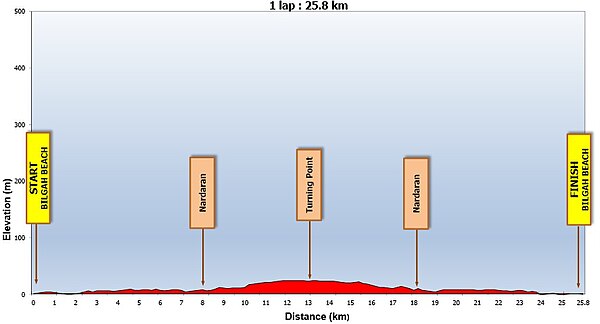
A bicycle, also called a pedal cycle, bike, push-bike or cycle, is a human-powered or motor-assisted, pedal-driven, single-track vehicle, with two wheels attached to a frame, one behind the other. A bicycle rider is called a cyclist, or bicyclist.

Cycling, also known as bicycling or biking, is the activity of riding a bicycle or other type of cycle. It encompasses the use of human-powered vehicles such as balance bikes, unicycles, tricycles, and quadricycles. Cycling is practised around the world for purposes including transport, recreation, exercise, and competitive sport.

The citric acid cycle—also known as the Krebs cycle, Szent–Györgyi–Krebs cycle or the TCA cycle (tricarboxylic acid cycle)—is a series of biochemical reactions to release the energy stored in nutrients through the oxidation of acetyl-CoA derived from carbohydrates, fats, and proteins. The chemical energy released is available under the form of ATP. The Krebs cycle is used by organisms that respire (as opposed to organisms that ferment) to generate energy, either by anaerobic respiration or aerobic respiration. In addition, the cycle provides precursors of certain amino acids, as well as the reducing agent NADH, that are used in numerous other reactions. Its central importance to many biochemical pathways suggests that it was one of the earliest components of metabolism. Even though it is branded as a "cycle", it is not necessary for metabolites to follow only one specific route; at least three alternative segments of the citric acid cycle have been recognized.

The Hebrew calendar, also called the Jewish calendar, is a lunisolar calendar used today for Jewish religious observance and as an official calendar of Israel. It determines the dates of Jewish holidays and other rituals, such as yahrzeits and the schedule of public Torah readings. In Israel, it is used for religious purposes, provides a time frame for agriculture, and is an official calendar for civil holidays alongside the Gregorian calendar.
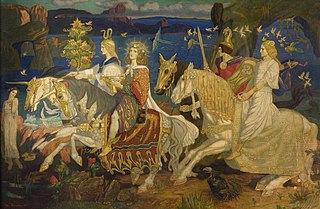
Irish mythology is the body of myths indigenous to the island of Ireland. It was originally passed down orally in the prehistoric era. In the early medieval era, some myths were transcribed by Christian monks, who heavily altered and Christianised the myths. Irish mythology is the best-preserved branch of Celtic mythology.

A steam engine is a heat engine that performs mechanical work using steam as its working fluid. The steam engine uses the force produced by steam pressure to push a piston back and forth inside a cylinder. This pushing force can be transformed by a connecting rod and crank into rotational force for work. The term "steam engine" is most commonly applied to reciprocating engines as just described, although some authorities have also referred to the steam turbine and devices such as Hero's aeolipile as "steam engines". The essential feature of steam engines is that they are external combustion engines, where the working fluid is separated from the combustion products. The ideal thermodynamic cycle used to analyze this process is called the Rankine cycle. In general usage, the term steam engine can refer to either complete steam plants, such as railway steam locomotives and portable engines, or may refer to the piston or turbine machinery alone, as in the beam engine and stationary steam engine.

Track cycling is a bicycle racing sport usually held on specially built banked tracks or velodromes using purpose-designed track bicycles.
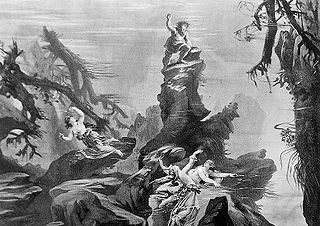
Der Ring des Nibelungen, WWV 86, is a cycle of four German-language epic music dramas composed by Richard Wagner. The works are based loosely on characters from Germanic heroic legend, namely Norse legendary sagas and the Nibelungenlied. The composer termed the cycle a "Bühnenfestspiel", structured in three days preceded by a Vorabend. It is often referred to as the Ring cycle, Wagner's Ring, or simply The Ring.
Business cycles are intervals of general expansion followed by recession in economic performance. The changes in economic activity that characterize business cycles have important implications for the welfare of the general population, government institutions, and private sector firms.
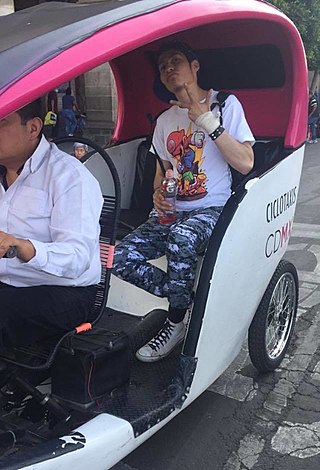
The cycle rickshaw is a small-scale local means of transport. It is a type of hatchback tricycle designed to carry passengers on a for-hire basis. It is also known by a variety of other names such as bike taxi, velotaxi, pedicab, bikecab, cyclo, beca, becak, trisikad, sikad, tricycle taxi, trishaw, or hatchback bike.
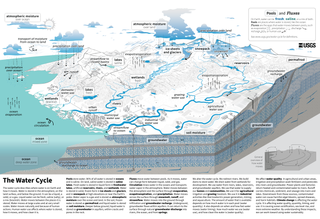
The water cycle, is a biogeochemical cycle that involves the continuous movement of water on, above and below the surface of the Earth. The mass of water on Earth remains fairly constant over time. However, the partitioning of the water into the major reservoirs of ice, fresh water, salt water and atmospheric water is variable and depends on climatic variables. The water moves from one reservoir to another, such as from river to ocean, or from the ocean to the atmosphere. The processes that drive these movements are evaporation, transpiration, condensation, precipitation, sublimation, infiltration, surface runoff, and subsurface flow. In doing so, the water goes through different forms: liquid, solid (ice) and vapor. The ocean plays a key role in the water cycle as it is the source of 86% of global evaporation.

The Rat or Mouse is the first of the repeating 12-year cycle of animals which appear in the Chinese zodiac, constituting part of the Chinese calendar system. The Year of the Rat in standard Chinese is Chinese: 鼠年; pinyin: shǔnián. The rat is associated with the first branch of the Earthly Branch symbol 子 (zǐ), which starts a repeating cycle of twelve years. The Chinese word shǔ refers to various small rodents (Muroidea), such as rats and mice. The term "zodiac" ultimately derives from an Ancient Greek term referring to a "circle of little animals". There are also a yearly month of the rat and a daily hour of the rat. Years of the rat are cyclically differentiated by correlation to the Heavenly Stems cycle, resulting in a repeating cycle of five years of the rat, each rat year also being associated with one of the Chinese wu xing, also known as the "five elements", or "phases": the "Five Phases" being Fire, Water, Wood, Metal, and Earth.
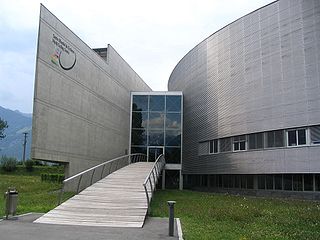
The Union Cycliste Internationale is the world governing body for sports cycling and oversees international competitive cycling events. The UCI is based in Aigle, Switzerland.

America's Next Top Model is an American reality television series and interactive competition in which a number of aspiring models compete for the title of "America's Next Top Model" and a chance to begin their career in the modeling industry. Created by Tyra Banks, who also serves as an executive producer, and developed by Ken Mok and Kenya Barris, the series premiered in May 2003, and aired semiannually until 2012, then annually from 2013. The first six seasons aired on UPN, before UPN merged with The WB to create The CW in 2006. The following sixteen cycles aired on The CW until the series was first cancelled in October 2015. The series was revived in 2016 and has been airing on VH1 ever since. The series was among the highest-rated programs on UPN and was the highest-rated show on The CW from 2007 to 2010. Advertisers paid $61,315 per 30-second slot during the 2011–12 television season, the highest of any series on The CW. The first 22 cycles of the series and cycle 24 were presented by Banks, while cycle 23 was presented by Rita Ora. The series also employs a panel of two or three additional judges, a creative director and a runway coach.

British Cycling is the main national governing body for cycle sport in Great Britain. It administers most competitive cycling in Great Britain, the Channel Islands and the Isle of Man. It represents Britain at the world body, the Union Cycliste Internationale (UCI) and selects national teams, including the Great Britain (GB) Cycling Team for races in Britain and abroad. As of 2020, it has a total membership of 165,000.

Road bicycle racing is the cycle sport discipline of road cycling, held primarily on paved roads. Road racing is the most popular professional form of bicycle racing, in terms of numbers of competitors, events and spectators. The two most common competition formats are mass start events, where riders start simultaneously and race to a set finish point; and time trials, where individual riders or teams race a course alone against the clock. Stage races or "tours" take multiple days, and consist of several mass-start or time-trial stages ridden consecutively.
The UCI Road World Championships are the annual world championships for bicycle road racing organized by the Union Cycliste Internationale (UCI). The UCI Road World Championships consist of events for road race and individual time trial, and as of 2019, a mixed team relay.

The UCI Track Cycling World Championships are the set of world championship events for the various disciplines and distances in track cycling. They are regulated by the Union Cycliste Internationale. Before 1900, they were administered by the UCI's predecessor, the International Cycling Association (ICA).

The UCI World Championships are annual competitions promoted by the Union Cycliste Internationale (UCI) to determine world champion cyclists. They are held in several different styles of racing, in a different country each year. Championship winners wear a white jersey with coloured bands around the chest for the following year. The similarity to the colours of a rainbow gives them the colloquial name of "the rainbow jersey." The first three individuals or teams in each championship win gold, silver and bronze medals. Former world champions are allowed to wear a trim to their collar and sleeves in the same pattern as the rainbow jersey.

the 1828–29 United States Senate elections were held on various dates in various states. As these United States Senate elections were prior to the ratification of the 17th Amendment to the United States Constitution in 1913, senators were chosen by State legislature United States. Senators were elected over a wide range of time throughout 1828 and 1829, and a seat may have been filled months late or remained vacant due to legislative deadlock. In these elections, terms were up for the senators in Class 2.



